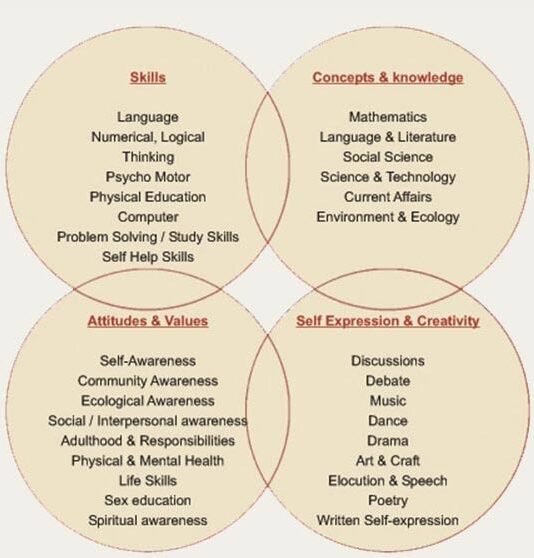Curricula
We are proudly affiliated with the National Education Policy and the Central Board of Secondary Education. We base our curriculum on the guidelines set forth by the NCERT (National Council of Education Research and Training) and NCF (National Framework for Curriculum).
Our commitment to these national educational foundations allows us to create a holistic educational system that responds to India’s rich diversity of geographical and cultural backgrounds, all while fostering a common core of values alongside academic excellence.
This approach empowers us to achieve the following objectives:
- Establishing a bridge between Knowledge and real-life environments.
- Shifting the focus from rote memorization to practical, effective learning methods. We connect knowledge to real-life experiences beyond the classroom.
- Enriching our curriculum to ensure the comprehensive development of our students.
- Crafting flexible and integrated assessments that align with classroom teaching and learning.
- Nurturing a prevailing identity rooted in compassionate concern within our nation's democratic framework.

Our curriculum structure is designed to establish a profound relationship between knowledge acquisition, skill development, value formation, and self-expression and creativity. These four areas are regarded as the fundamental pillars of the curriculum structure as they ensure a well-rounded and meaningful educational experience for all our students.
We believe that merely teaching cognitive skills is insufficient. To nurture children into well- rounded individuals and help them feel accomplished, the curriculum must address all aspects of human development. It provides a comprehensive overview of the content for each subject, offering a broad learning experience and promoting diverse teaching methods to accommodate the individual needs of each child.
The curriculum acknowledges the interconnectedness of knowledge and emphasizes the links between different curriculum areas. These areas are interconnected and often overlap, eliminating arbitrary divisions of knowledge. While subjects are separated for teaching purposes, this approach ensures a cohesive learning journey for children and recognizes the intricate nature of the learning process.

